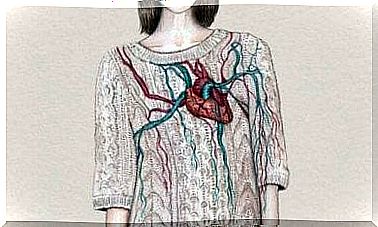Music In Shops Affects Us

Have you ever walked into a shop and have the feeling of being in a disco? No, you did not miss the entrance: the music is actually high, rhythmic and urgent, almost noisy, as well as current. All of this has to do with sensory neuromarketing and how music in clothing stores affects our purchases.
Does it push us to buy more? How? Is the choice of the pieces decisive? Let’s discover all the mysteries of this increasingly common practice by fashion companies, especially towards young people.

How does music in clothing stores affect us?
According to Sanchez (2015), “music falls within all elements of the human and social dimension, sometimes without our being aware of it”. The truth is that music in stores affects our mood, which in turn affects our purchasing decision.
Companies are pushing more and more on sensory marketing (or sensory neuromarketing), that branch of marketing that directly affects our senses to stimulate the desire to buy. A whole series of techniques are implemented to stimulate our sense of hearing, in this case through music.
As you may have deduced, the music you hear in the shops is not chosen at random. Gritty melodies stimulate more impulsiveness when buying.
So how does music in clothing stores affect us? By limiting our self-control, affecting our mood, ultimately leading us to buy more or less compulsively.
Just gritty music?
Loud, pressing music isn’t the only one we might hear in a clothing store. Each store varies songs depending on the target, that is the type of buyer to whom it is aimed.
While young people tend to opt for trendy and noisy music, to address an older audience many companies choose relaxing, calm melodies that instill a state of calm and relaxation.
As we have seen, brands adjust their music strategy depending on the customer or product offered to boost sales.
Music in the shops saturates the senses
Loud music overloads our senses and leaves less room to reflect when we have to make a decision (in this case, what to buy). An accelerated and pressing melody can stimulate our impulsiveness. With overloaded senses and a saturated cognitive system, our mind has no room to reflect or think.
In clothing stores, music is often designed for younger audiences who tend to be more impulsive than adults. Of course, music always acts the same way, but it affects each person differently.
On someone who is already impulsive by nature, music will have an even more powerful effect on their decision to buy out of control.
Stimulation of pleasure
In addition to stimulating impulsive shopping, music promotes a pleasant sensory experience inside the store. Feeling comfortable, we will tend to spend more time inside it, increasing the chances of buying.
Music can improve our mood, dispel worries and entice us to buy (more). In addition to this, by associating the clothing store (or any other type) with a positive experience, we are loyal as customers and we are encouraged to return.

Sensory neuromarketing: art or manipulation?
We have seen that different musical genres affect our purchasing choices. When we enter a store without enthusiasm, undecided or distracted, the music manages to awaken our emotions, our impulsive behavior and our need to buy, leading us to open our wallet.
Sensory neuromarketing speaks of all this, which studies, nourishes and acts in the field of neurobiology of the senses. Its purpose is to thoroughly analyze sensory perception to understand how stimulating the senses affects the purchase decision.
The truth is that it is a real “manipulation”, and even if it is a legitimate technique, knowing it can make us more cautious in choosing to make purchases that we do not need. Art or manipulation? How far do the limits of marketing go? Whatever the case may be, its power is undeniable.









